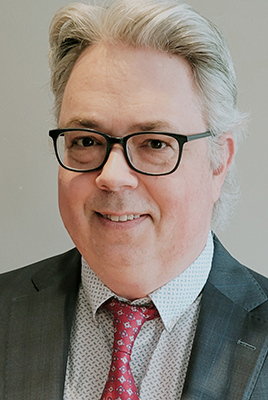A series of non-credit modules developed in the Faculty of Science and delivered entirely online provides high school students with essential skills they need to be successful in their university studies.
By Elaine Smith

Knowing that being prepared for the demands of university makes the transition so much easier for high school students, York University’s Faculty of Science decided to smooth the way with a York Science Summer Transition Program.
“When COVID-19 hit in March 2020, we knew high schools were moving online and we immediately thought that it was possible instruction might not be as solid because of that transition, so we offered a summer program to make sure students were prepared,” said Michael Scheid, associate dean, students, Faculty of Science.
Scheid and his colleagues created an online five-module program geared toward prospective incoming students, with each of the modules taught synchronously for three hours each week by full-time faculty or postdoctoral Fellows. Four of the modules focused on consolidating the students’ knowledge of a particular subject – math, chemistry, physics and biology – and the fifth offered students insights into the university experience and what to expect come fall. The modules were designed to help consolidate students’ knowledge from their Grade 12 classes in preparation for university-level study.
“We sent out a call to all the department chairs to recruit faculty and we filled all five spots very quickly,” said Scheid. “Each course director designed a module based on their own pedagogy and geared toward the transition from high school to university.”
These non-credit modules were open to any incoming York first-year student for a $50 fee that was refunded upon successful completion of the module, which was primarily based on regular online attendance. The class times for the modules didn’t overlap, so students could enrol in one or many, depending on their needs. “We were pre-emptively trying to prepare students for university math and science,” said Scheid.
Afterward, more than 89 per cent of the students enrolled said they would recommend the modules to their friends. And, given that attendance and feedback were positive, the Faculty decided to continue the program in Summer 2021.
“I loved the interaction with other students and the professor, as well as the risk-free and safe-place-to-make-mistakes environment,” said Zahara H., a student who participated in the transition program in 2020.
Mohammed J., another 2020 participant, said, “Overall I am really thankful for the course and the professor as well as other instructors/staff for taking their own time during summer and helping us, newcomers, to be more prepared for the upcoming university year.”
In 2021, the Faculty also created the Science Summer Transition Program (SSTP) Award, which was available for up to 10 international students who had completed at least two summer modules and enrolled in the undergraduate programs at the Faculty of Science. Three students received the $3,000 award that was applied to their first year of study.
Andrew Skelton, assistant professor, teaching stream, in the Department of Mathematics and Statistics, taught the mathematics module both years.
“I love it,” he said. “When the pressure for grades is off, there is such a friendly and open learning environment. This is the first university-style course they have ever taken, and I don’t want them to be more scared than they already are. Anything I can do to alleviate their fears, I will.”
Skelton says the courses help to instil a bit more independence in the incoming first-year students. Through the transition program courses, students can assess their personal weaknesses in a particular subject and gain tools to look things up on their own.
“I’ve taught first-year mathematics for a long time, so I thought about what incoming students would need and picked out the topics that would be valuable to as many people as possible,” he said. “Each student has unique gaps in their background knowledge, so the best thing we can do is help them identify their own personal obstacles to success. I also try to make time to talk about study skills, because those are critical to attaining that success.”
The Faculty of Science plans to continue the program and Scheid believes it is valuable, “We want students to succeed and do well in their first-year classes, and this is one way we can bolster that success.”


